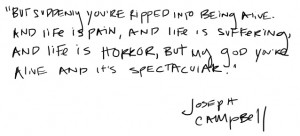A certain San Francisco radio personality brags that she quit smoking months ago, when in fact she’s switched to e-cigarettes. Another friend tells me on the phone that she “hasn’t smoked a cigarette in ages!” — but all she did was switch over to the electronic variety. The insidious aspect of these new nicotine delivery systems is that they lull people into thinking they’ve given up the habit when in fact they’re still as addicted as they ever were.
Here’s why.
I smoked over a pack a day for 20+ years. When I finally quit in my mid-30s, I quit cold turkey. I’d been reading an article about a little girl with cystic fibrosis whose mother had to hold her upside down daily to clear the mucus from her lungs and I thought, “Here’s a child who would do anything to have healthy lungs, and I’m voluntarily destroying mine.” I quit the next morning. And oh, it was hard. I carried around Jacquelyn Rogers’ “You Can Quit Smoking” book with me everywhere I went, so I could frequently refer to it for motivation. At the time, people still smoked at their desks in offices, so I brought carrot sticks to work and chewed them all day long. After a week or so the physiological craving subsided, but that’s when the tough work began: dealing with the emotional/psychological addiction. In short, I was depressed. I felt I’d lost my best friend. I couldn’t imagine doing anything without my cigarettes: how could I get through work, how could I drive? How could I face the day? In those days I spent two weeks each summer at a cabin in Lake Tahoe with my family. That first year, I distinctly remember wondering how I was going to get through my vacation without smoking. And I remember one awful day, sitting outside on the deck of the Tahoe cabin, sobbing because I couldn’t smoke. That’s nicotine addiction.
Because, before quitting, I had used cigarettes for everything: when angry, to celebrate, when anxious, while reading, with my coffee, with my wine, to wake up, after meals, to help with boring commutes, to deal with grief, everything. I never felt my feelings — I had cigarettes to do that for me. Nicotine is no different from any other drug in that aspect — it’s used by smokers to self-medicate.
On the other hand, if you’re using e-cigarettes to help you quit, more power to you. Unfortunately, only one-fifth of people who tried e-cigarettes as a stop-smoking aid succeeded in quitting long-term, according to a recent study published in the journal Addiction. However, quit-smoking rates in general are dismal (according to drugfree.org, 35% of American smokers tried to quit last year and only 6% succeeded) — but millions have beat the odds. According to the New York Times, only 19% of American adults smoke, down from 42% fifty years ago. That’s a lot of successful quitters.
The bottom line: if you’ve decided to give up cigarettes forever, good for you. Quit cold turkey if you can, or use every aid at your disposal if you can’t — e-cigs, hypnosis, patches, lozenges, gum, prescribed antidepressants, acupuncture, individual or group therapy, whatever works. Just please don’t fool yourself into thinking you’ve given up the habit until you’ve actually given up the habit. If you’re still reaching for something to suck down into your lungs, you’re still a smoker. If you’re still nicotine-dependent, you’re still an addict. When you are no longer a smoker, you’ll know it. And you’ll feel a rush of freedom like never before.


